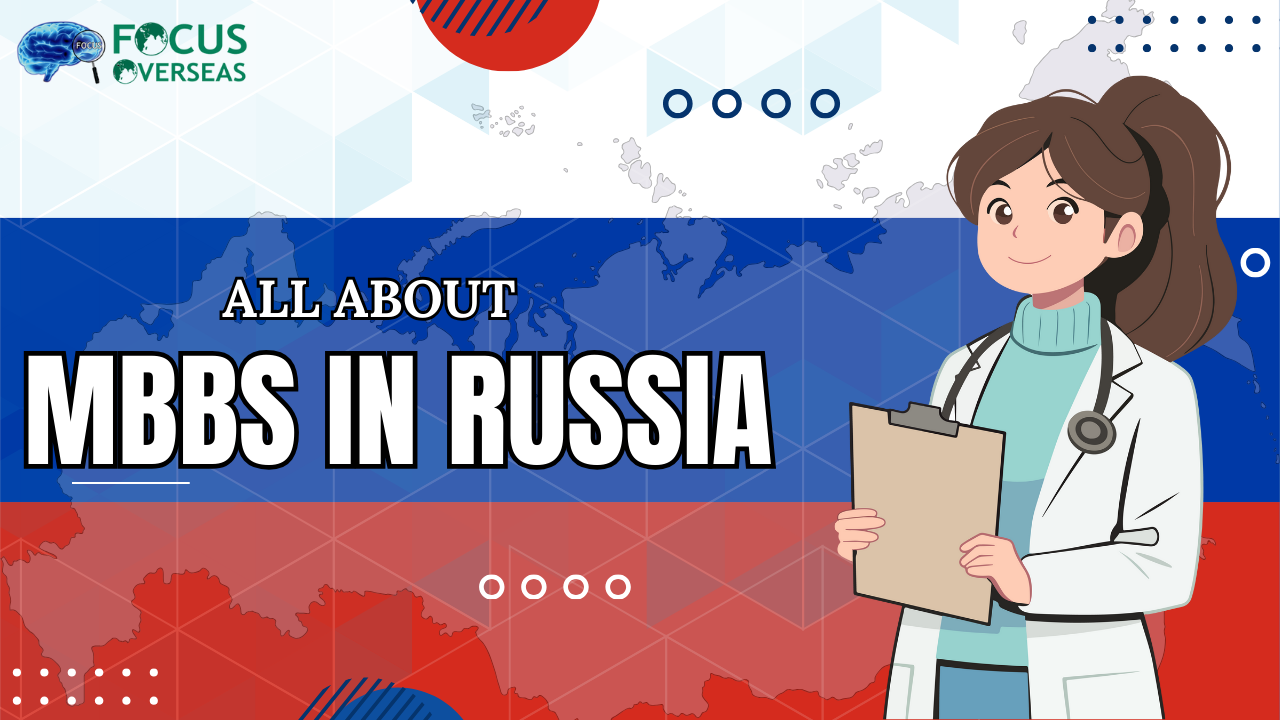
From Admission to Graduation: Studying MBBS in Russia
April 15, 2025
From Admission to Graduation: Studying MBBS in Russia
Are you dreaming of becoming a doctor but overwhelmed by the competitive process or high tuition fees in your home country? Russia might just be the destination that brings your dream to life. With its world-class medical universities, globally recognized degrees, and affordable living costs, studying MBBS in Russia has become an increasingly popular choice for international students—especially from countries like India, Nepal, Nigeria, Egypt, and Sri Lanka.
Let’s take a walk through the journey of studying MBBS in Russia—from admission to graduation.
Why Choose Russia for MBBS?
Russia is home to over 50 medical universities, many of which are recognized by the World Health Organization (WHO), National Medical Commission (NMC) (India), ECFMG (USA), and other international bodies. The country offers:
- Affordable tuition fees compared to Western countries
- High-quality education and clinical exposure
- No entrance exam (in most cases)
- English-medium programs available
- Multicultural student community
- Opportunity to experience a rich cultural and historical heritage
Step 1: Admission Process
Getting admitted to a Russian medical university is relatively straightforward. Here’s how it usually goes:
Eligibility Criteria:
- Completed 10+2 or equivalent with Physics, Chemistry, and Biology
- Minimum 50% marks in PCB (40% for reserved categories in India)
- NEET qualification (for Indian students) is mandatory for practicing in India after graduation
Documents Required:
- 10th and 12th-grade mark sheets
- Passport
- NEET scorecard (for Indian students)
- Passport-size photos
- Admission letter from the university
- Medical certificate with HIV test results
Application Timeline:
- May to August: Apply to universities
- August to September: Receive invitation letter and apply for visa
- September to October: Begin your academic session
Step 2: Arrival and Settling In
Once your visa is approved, you're all set to fly to Russia. Most universities have international student support offices that help with airport pickups, hostel allocation, and orientation.
Life as a Student:
- Students usually stay in university hostels with basic facilities.
- Russian cities like Moscow, Kazan, and Saint Petersburg offer a vibrant urban lifestyle.
- The cost of living (excluding tuition) ranges between $100 to $250 per month, depending on your lifestyle and city.
Step 3: Academic Journey
Duration & Structure:
- 6 years for MBBS (General Medicine)
- First 3 years focus on theoretical knowledge
- Last 3 years emphasize clinical training and hospital rotations
The curriculum blends lectures, practicals, and real-time patient interactions. Even though many universities offer an English-medium course, students are required to learn basic Russian, especially for hospital interactions during clinical years.
Common Subjects Covered:
- Anatomy, Physiology, Biochemistry
- Pathology, Microbiology, Pharmacology
- Surgery, Pediatrics, Internal Medicine, Psychiatry, Obstetrics & Gynecology
Step 4: Exams and Evaluation
Students are evaluated through semester exams, practical assessments, and final state exams. Russian universities maintain high academic standards, and students are expected to be consistent and disciplined.
Step 5: Graduation and Beyond
Upon successful completion of the course, students receive an MD (Physician) degree, which is equivalent to an MBBS in many countries. But graduating is not the final step—you'll need to pass licensing exams in your home country to practice medicine.
Post-Graduation Options:
- Return home and appear for medical licensing exams (e.g., FMGE/NExT in India, PLAB in UK, USMLE in USA)
- Pursue PG studies in Russia or abroad
- Apply for internship/residency programs (some countries require local internships)
Challenges to Keep in Mind
- Language barrier: Learning Russian is crucial, especially for clinical rotations.
- Cultural adaptation: Different food, climate, and social customs can be a challenge initially.
- Harsh winters: Russian winters are long and cold, but manageable with the right gear.
Final Thoughts
Studying MBBS in Russia is a life-changing journey. It’s not just about acquiring a medical degree—it's about becoming resilient, independent, and globally competent. If you're ready to step out of your comfort zone and immerse yourself in a challenging yet rewarding experience, Russia might just be your gateway to a successful medical career.
Whether you're just beginning your research or already preparing for departure, we hope this guide gives you clarity and confidence as you take your first step from admission to graduation.